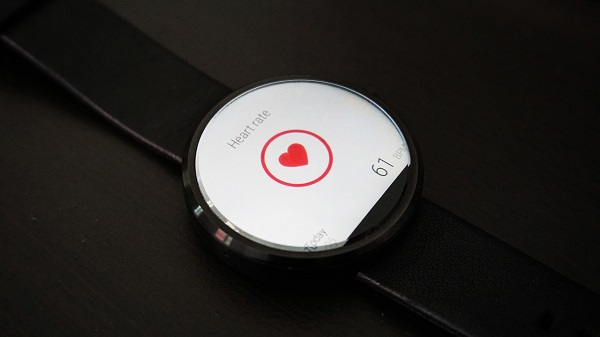Digital Trends in Heart Health You’ll Hear About in 2021

IMAGE: https://cdn.pixabay.com/photo/2016/11/20/07/45/heart-rate-1842062_1280.jpg Credit: Pixabay
We live in a time when technology is advancing at an incredibly rapid pace. This benefits virtually all aspects of society, but some of the most significant implications are in healthcare. New technologies are bringing about exciting and consequential changes in many different types of care — including efforts to improve heart health. And with more people becoming aware of heart health through events like World Heart Day, there is an increasing demand for this technology.
Rather than just accept that technology is improving heart healthcare in an overarching or general sense, however (even if that would be accurate), we’ve done some research regarding specific digital and tech-based trends we can expect to see in this space in 2021. The following changes stand out.
More Prevalent Health Watches
The first thing that comes to mind for most when considering digital trends in heart health is likely to be the rise of fitness- and health-tracking devices. And with good reason! We’ve seen such devices emerging in recent years, and by all indications they have improved to the point of being legitimately useful.
First and foremost in this category is the Apple Watch. While this device is more of a fitness tracker and phone substitute than an actual medical tool, it does measure some attributes that relate to heart health. Per How-to-Geek’s look at the latest Apple Watch features, the device (alongside its accompanying ECG app) can measure both heart rate and heart rhythm for abnormalities, alerting users to potential problems.
While the Apple Watch is the best-known device of this nature though, the exciting thing is that it has a lot of competition! The 100Plus Emergency Watch is a more specialized device that measures numerous biometrics. And by this point it is one of many Apple Watch alternatives that are even more health-oriented. Simply put, we expect to see further development on this front throughout the year, with more options merging for people who want to monitor their heart health on a day-to-day basis.
The Rise of Other Wearables
As the idea of health-tracking via smartwatch becomes more widely accepted (and generally more normal), another trend we believe we’ll see is a spike in other wearable health-tracking items. One example we can already point to is the smart shoe from FootWARE that was honored at CES in 2020. This is essentially a casual or athletic shoe that can do everything most health-tracking watches do: measuring pulse rate, heart rate, blood pressure, and even stress level. Because not everyone wants to wear a smartwatch, we believe more options like this FootWARE shoe will emerge. We’ll see accessories and clothing that monitor aspects of heart health without the user needing to participate or even be actively aware of the process.
Digitized Blood Pressure Checkers
This is perhaps a smaller development, but we have begun to see smarter and more intuitive blood pressure monitors emerging as well. These devices, like BPM Core, are basically designed to make it easier for people to measure and record their own blood pressure and ECG. We should note that BPM Core specifically has somewhat mixed reviews, but the idea of it is what we expect to see building in 2021. The idea of making it easier for people to sit down and check on their own heart health at home is an important one, and this simple fact should lead to the emergence of more digital, “smart” monitors of this nature.
Caregiver Awareness of Digital Trends
It is also worthwhile to consider digital advancement of care with respect to how healthcare professionals are handling the changes. And in this respect we also expect to be hearing more about dynamic health education environments designed to adapt and train caregivers in the latest practices.
This is likely to come about primarily with respect to online and remote education for nurses, physicians’ assistants, and the like. This form of education was already on the rise before the pandemic, and now has a chance to become a new normal, as well as an education environment better suited to quick changes and additions to curriculums. Case in point, a description of online RN-to-BSN degrees at Maryville University states that internet-based nursing education adopts a “practical focus that’s mindful of healthcare industry trends….” Given how quickly such trends are emerging due to technology, we’ll likely be hearing more about how nurses and other healthcare professionals are being taught to keep up.
Caregiver Practice Via Digital Means
Just as aspiring healthcare workers will likely see some change in what they study due to digital changes in care methods, they may also soon encounter new ways to study. And this too relates to some of the digital trends we’re seeing in healthcare more generally.
Specifically, we’re referring to the rise of virtual reality as a tool in health education, which has been ongoing for a few years now. According to Oxford University studies on VR training, students who learn through this technology tend to perform as well or better than those who stick to traditional methods. And this too has exciting implications for heart health! Because of the aforementioned increase in remote education, we feel there’s likely to be more focus on virtual training in 2021 and beyond. This has the potential to engage more students in more practice, and ultimately improve the quality of care in heart health and medicine more broadly.
Undoubtedly there will be some exciting digital developments this year that we haven’t foreseen, as well. But the developments and possibilities outlined above are certainly worth keeping track of. All things considered, shifts and advances in technology appear likely to yield better options for patients tracking their own health, as well as better preparedness on the part of healthcare professionals.
Article solely for the use of safebeat.org Prepared by Alicia Stuart


